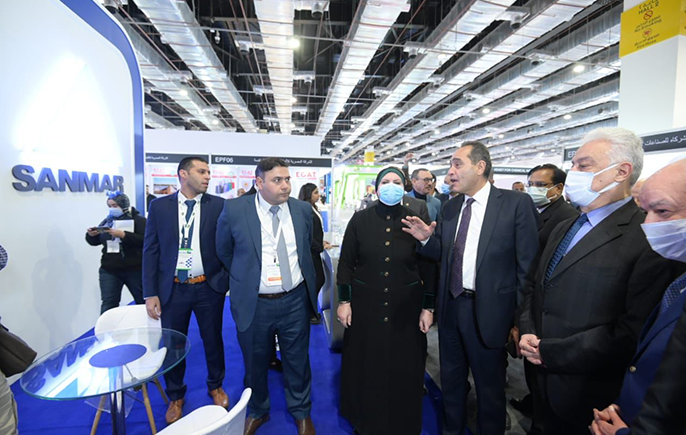Plastic Bank Egypt Participates in PLASTEX 2022 to Explore New Opportunities to Achieve Sustainability
• El-Kady: Plastic Bank seeks new opportunities to forge new partnerships and support the environmental sector to achieve sustainability and corporates’ environmental goals.
• El-Kady: Plastic Bank is working to build a circular economy and raise awareness towards the environmental risks of poor plastic waste management to stop plastic waste flow into seas and rivers.
Plastic Bank participated in the 18th edition of PLASTEX, under the patronage of H.E. Dr. Mostafa Madbouly, Prime Minister of the Arab Republic of Egypt and supported by the Ministry of Trade and Industry, to explore the opportunities to forge new partnerships and support environmental sustainability to build a circular economy.
PLASTEX is one of the most prominent events held annually in Egypt, assembling the world’s largest leading manufacturers and suppliers of plastics to connect with buyers from all over the MENA region. With more than 300 local and international companies under its umbrella, this edition has the 4th Industrial Revolution and Recycling on top of its agenda.
Amr El-Kady, Regional Director for Egypt, the Middle East and Africa expressed his delight saying: “Plastic Bank is honored to participate in PLASTEX 2022, especially as Egypt prepares to host COP 27 summit this year, and the serious steps the country takes towards achieving sustainability and ensuring the concept of circular and green economy in line with Egypt 2030 strategic vision. Therefore, we are seeking new partnerships to help support sustainability and corporates to achieve their environmental goals in accordance with the Ministry of Environment’s plastic waste management initiatives and law.”
“Plastic Bank is working on implementing the concept of circular economy and raising awareness of the environmental risks arising from poor plastic waste management to stop plastic waste flow into seas and rivers. The social enterprise is dedicated to convert plastic waste into social plastic©, which is collected and reintegrated into packaging products using digital technology, taking into account the environmental and social dimensions of the regenerative collection process,” El-Kady added.
It is worth noting that Plastic Bank withstood the challenges posed by COVID’s pandemic, and managed to collect more than (3,000) tons of plastic equivalent to (150) million bottles, and prevented their leakage to Nile River and Egypt’s seas, exceeding its target set at the start of the year by 105%. The social enterprise also expanded through the year in 5 provinces with 11 plastic waste collection centers and provided jobs for more than 600 plastic collectors integrating them into the formal economy with the aim of improving the collection system while preserving the environment.
About Plastic Bank
Plastic Bank is a social enterprise that aims at creating a recycling-based community through providing job opportunities and income resources for collecting plastic waste. Plastic Bank is helping the world stop ocean plastic while improving the lives of collector communities, and establishing a collection ecosystem in coastal communities and integrate the plastic back into recycling value chains as Social Plastic® to be reused in global industries. Plastic waste collectors receive money, services or goods in exchange for plastic waste, providing them with secure lives. Also, Plastic Bank fights child labor, converts informal sector into a formal one, develops work places according to HSE standards, encourages education and improve collectors’ lives.
Plastic Bank’s Blockchain platform secures the full supply chain and provides real-time data accessibility which enables optimum transparency, traceability, and ability to scale across Egypt. The collected material is reborn as Social Plastic® which can be easily reintegrated into products and packaging as part of a closed-loop supply chain.
Plastic Bank was founded by David Katz in March 2013, with the aim of gathering a billion people together to monetize waste while improving the lives of people in countries that lack waste management infrastructure. Plastic Bank currently has operations in the Philippines, Indonesia, Brazil, and Egypt, with plans to expand into Colombia and Vietnam in the coming years.

